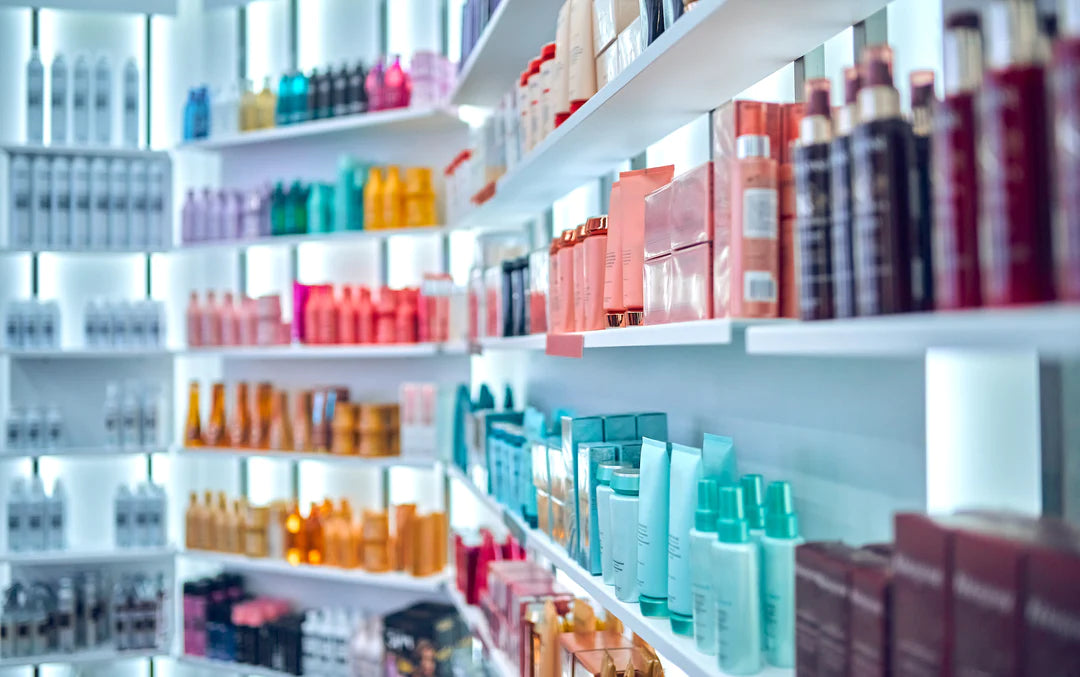
Why Do I Get Acne on My Cheeks?
Acne, a persistent adversary to clear skin, appears in diverse forms and locations. The cause of acne is pretty simple: dead skin cells, sebum production, and bacteria goop together and clog your pores, causing an infection in the skin. One of the most common areas it chooses as its battleground is the cheeks. Cheek acne can be a frustrating and perplexing concern for many individuals, impacting not only their physical appearance but also their confidence.
Continue reading to identify its different forms, and gain practical insights on how to address and prevent those unwelcome blemishes. Whether you're someone grappling with this skin condition or just seeking to understand it better.
What is Cheek Acne?
Cheek acne refers to the occurrence of acne, a common skin condition characterized by the development of pimples, blemishes, or lesions, specifically on the cheeks. Cheek acne specifically affects the cheeks, which are one of the prominent areas of the face. Understanding the specific type of acne on the cheeks, whether they are whiteheads, blackheads, papules, pustules, nodules, or cysts, is crucial for determining appropriate treatment approaches.
Effectively managing cheek acne involves a combination of skincare practices, lifestyle adjustments, and sometimes medical interventions. Adopting a consistent skincare routine, using non-comedogenic products, and maintaining a healthy lifestyle are common strategies for preventing and reducing cheek acne.
What Causes Cheek Acne?
Cheek acne can be attributed to a variety of factors, and understanding these causes is crucial for effective prevention and management. Here are some common contributors to the development of cheek acne:
- Hormonal Changes: Fluctuations in hormone levels, particularly during puberty, menstruation, pregnancy, and menopause, can stimulate the sebaceous glands to produce more oil. Excess oil can clog hair follicles and contribute to the development of acne, including on the cheeks.
- Genetics: A family history of acne may increase the likelihood of developing cheek acne. Genetic factors can influence skin type, oil production, and how the skin responds to inflammation.
- Skincare Products: The use of comedogenic or pore-clogging skincare and cosmetic products can contribute to the formation of acne. Ingredients that may exacerbate acne include certain oils, fragrances, and heavy moisturizers.
- Dietary Factors: Some studies suggest a link between diet and acne. Consuming high-glycemic foods and dairy products, as well as having a diet low in certain nutrients, may influence the development of acne.
- Environmental Factors: Exposure to pollutants, humidity, and certain climates can affect the skin's condition. Pollutants can contribute to clogged pores, while humid environments may increase oil production.
- Poor Skincare Habits: Inconsistent or inadequate skincare routines, such as not cleansing the face regularly or using harsh products, can contribute to the accumulation of oil and dead skin cells, leading to acne.
- Stress: Stress triggers the release of certain hormones that can stimulate oil production and contribute to inflammation, potentially leading to acne breakouts on the cheeks.
- Friction and Pressure: Constant rubbing or pressure on the cheeks, for example, from tight clothing, hats, or resting the face on hands, can irritate the skin and contribute to acne formation.
Understanding these causes can guide individuals in adopting proactive measures to prevent cheek acne. Maintaining a consistent and gentle skincare routine, managing stress levels, and making mindful choices regarding diet and lifestyle can all play significant roles in reducing the likelihood of developing cheek acne.
Face Mapping
In the realm of face mapping, the skin is believed to mirror internal issues, with the location of a skin concern indicating the nature of the underlying problem. In the case of cheek acne, attention is directed toward the liver and lungs.
Chinese medicine places significance on the left and right sides. When it comes to acne on the cheeks, here are some general interpretations based on face mapping:
- Upper Cheek Acne: Often associated with respiratory issues or allergies. Consider if you are exposed to environmental pollutants or allergens. Smoking or spending time in a smoky environment might contribute to upper cheek acne.
- Lower Cheek Acne: Linked to dental health and issues with the mouth or gums. Poor oral hygiene, gum problems, or irregular dental check-ups might be factors. Additionally, hormonal imbalances, especially related to the reproductive system, can contribute to lower cheek acne.
- Left Cheek Acne: Some face mapping theories suggest that the left side of the face is associated with issues related to the liver. Dietary choices, alcohol consumption, or exposure to pollutants may be considered.
- Right Cheek Acne: The right side of the face is often associated with the lungs and digestive system. Smoking, allergies, or poor digestion might be factors contributing to right cheek acne.

While face mapping is not scientifically proven, some people find it interesting and potentially helpful in identifying patterns. It's important to note that face mapping is not universally accepted in the medical community, in face, different face mapping resources even propose diverse interpretations for various facial areas.
How Can I Stop Acne on Cheeks?
Managing and preventing acne on the cheeks involves adopting a comprehensive approach that addresses various contributing factors. Here are some tips to help you stop acne on your cheeks:
- Establish a Consistent Skincare Routine: Cleanse your face twice daily with a mild, non-comedogenic cleanser to remove excess oil, dirt, and impurities. Use a gentle exfoliator to help unclog pores and remove dead skin cells, but avoid over-exfoliating, as it can irritate the skin.
- Choose Non-Comedogenic Products: Select skincare and cosmetic products labeled as non-comedogenic to minimize the risk of clogging pores.
- Be Mindful of Your Diet: Consider your diet and its potential impact on acne. Limit the consumption of high-glycemic foods and dairy products, as they may contribute to acne for some individuals.
- Hydrate and Moisturize: Stay hydrated by drinking an adequate amount of water, and use a lightweight, non-comedogenic moisturizer to maintain skin hydration without causing breakouts.
- Avoid Touching Your Face: Refrain from touching your face with unwashed hands, as this can transfer bacteria and contribute to acne.
- Manage Stress: Practice stress-reducing activities such as meditation, yoga, or deep breathing to help manage stress levels. Stress can contribute to hormonal imbalances that may trigger acne.
- Review Your Skincare Products: Check the ingredients of your skincare and cosmetic products. If you suspect a product is causing breakouts, consider switching to alternatives with fewer comedogenic ingredients.
- Protect Your Skin from the Sun: Use a broad-spectrum sunscreen with at least SPF 30 to protect your skin from harmful UV rays. Sun exposure can worsen acne and cause pigmentation issues.
- Be Patient and Consistent: It may take time for changes to take effect, so be patient and consistent with your skincare routine. Abruptly changing products can sometimes worsen acne.
Remember that everyone's skin is unique, and what works for one person may not work for another.
How to Prevent Cheek Acne
Preventing cheek acne involves adopting a consistent skincare routine, making lifestyle adjustments, and being mindful of potential triggers. Here are some tips to help prevent acne on the cheeks:
- Cleanse Regularly: Wash your face twice a day with a mild, non-comedogenic cleanser to remove excess oil, dirt, and bacteria. Avoid overwashing, as this can strip the skin of natural oils.
- Use Non-Comedogenic Products: Choose skincare and cosmetic products labeled as non-comedogenic to reduce the risk of clogging pores.
- Moisturize: Use a lightweight, non-comedogenic moisturizer to keep the skin hydrated without contributing to excess oil production.
- Avoid Touching Your Face: Refrain from touching your face with unwashed hands, as this can transfer bacteria and contribute to acne.
- Exfoliate Regularly: Incorporate a gentle exfoliator into your routine to help remove dead skin cells and prevent the buildup of debris in pores. However, avoid over-exfoliating, as it can irritate the skin.
- Be Mindful of Hair Products: If you use hair products, be cautious about allowing them to come into contact with your face. Hair products can contain oils and other ingredients that may contribute to acne.
- Clean Bedding and Pillowcases: Regularly wash your pillowcases, sheets, and blankets to prevent the buildup of oils and bacteria that can transfer to your face while you sleep.
- Dietary Considerations: Pay attention to your diet. Some individuals find that reducing the consumption of high-glycemic foods and dairy products can help manage acne.
- Hydrate: Stay well-hydrated by drinking an adequate amount of water. Proper hydration supports overall skin health.
- Manage Stress: Practice stress-reducing activities, such as meditation, yoga, or deep breathing exercises. Stress can contribute to hormonal imbalances that may trigger acne.
- Regular Exercise: Engage in regular physical activity to promote overall well-being and circulation. Shower promptly after exercise to remove sweat and prevent pores from becoming clogged.
- Sun Protection: Use a broad-spectrum sunscreen with at least SPF 30 to protect your skin from UV rays. Sun exposure can exacerbate acne and cause pigmentation issues.
Remember, consistency is key when it comes to skincare and preventive measures.






